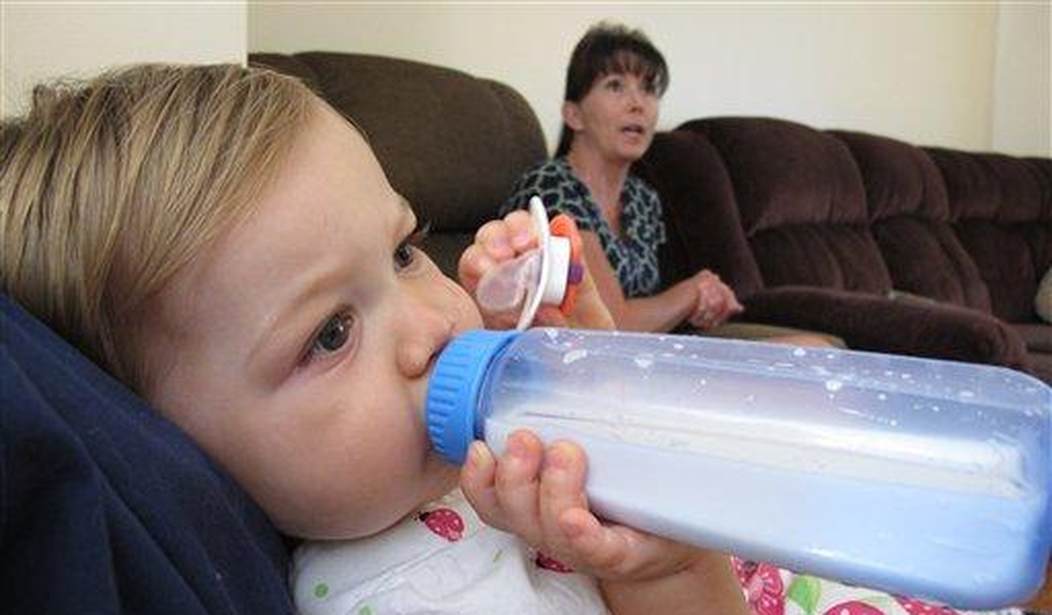The Special Supplemental Nutrition Program for Women, Infants, and Children, also known as WIC, provides states with grants for food, health care referrals, and nutrition education for low-income mothers, babies, and young children who are at nutritional risk. That's why a new proposal from the U.S. Department of Agriculture that would affect this nutrition security safety net is raising bipartisan alarm.
In November, USDA announced the proposed rule, which would reduce the amount of dairy "provided in all child, pregnant, postpartum, and breastfeeding participant food packages" and add "substitutions for milk" like "soy-based" yogurt and cheeses.
In a bipartisan letter to USDA Secretary Thomas Vilsack, GOP Rep. Elise Stefanik of New York, Democrat Rep. Josh Harder of California and dozens of other lawmakers expressed their "deep concerns" about the proposed rule, which they argue "will have unintended and significant negative effects on the health of WIC participants."
As the lawmakers state in the letter, the proposed rule would reduce the current maximum monthly allowance for milk to 12 quarts for 12-to-24-month-old children, down from 16 quarts. For 2-4-year-olds, it would be reduced to 14 quarts, down from 16 quarts, while for pregnant and partially breastfeeding moms, it would be reduced to 16 quarts, down from 22 quarts.
At the time the rule was proposed, USDA claimed the revisions were "science-based" and "incorporate recommendations from the National Academies of Science, Engineering, and Medicine (NASEM) and the Dietary Guidelines for Americans, 2020-2025."
Recommended
But lawmakers and industry leaders are objecting.
"Dairy products provide nutrients that are vital to the health of infants, children, mothers, and expectant mothers," the lawmakers said. "We are greatly concerned that reducing dairy in WIC food packages will negatively impact the nutritional intakes and health of program participants, as it will decrease their access to dairy's nutrients at life stages key for health and development."
Dairy products are three of the top five redeemed WIC items. I signed a letter led by @RepStefanik and @RepJoshHarder to the @USDA to reject a proposed rule that would reduce the monthly milk allowance, a move that would limit American families’ access to critical nutrients. 🥛 pic.twitter.com/zltMU75ELf
— Rep. Don Bacon 🇺🇸 (@RepDonBacon) March 8, 2023
The criticism was joined by Michael Dykes, president and CEO of International Dairy Foods Association.
"USDA's proposed cuts to WIC dairy benefits put low-income mothers and children at risk of losing access to critical nutrients at a time when food costs are a major challenge for families," he said. "USDA's proposal ignores its own federal Dietary Guidelines, which say 90 percent of Americans are not consuming enough dairy to meet daily requirements. USDA must not make these cuts and instead, find ways to improve program participation by encouraging the purchase of nutritious milk and dairy. IDFA is grateful to Reps. Stefanik and Harder and the bipartisan group of representatives calling on USDA to maintain the current WIC dairy allotments in the final rule."
"Milk is very important, and that's why most moms are on WIC." - Brittany Oxley, a WV mother and WIC participant.
— IDFA (@dairyidfa) March 3, 2023
We are working to prevent USDA from making cuts in benefits to the 6M mothers and children participating in WIC. Learn more: https://t.co/KVkMAAPdot pic.twitter.com/yhRnfJ6nRq

























